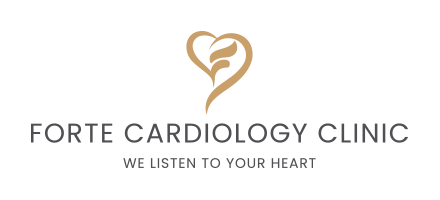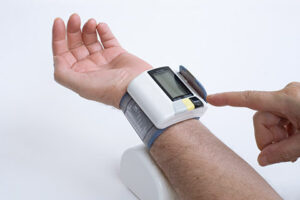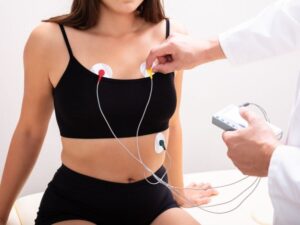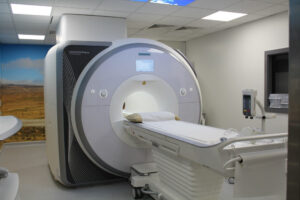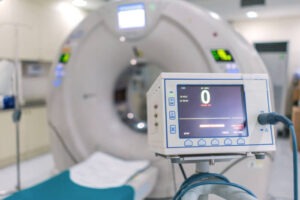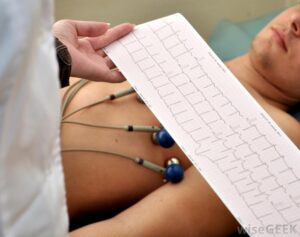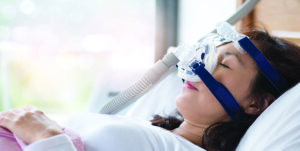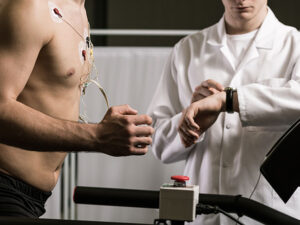Sleep Studies emerge as a unique and insightful investigation tool concerning heart health. These studies delve into the relationship between sleep patterns and cardiovascular well-being. Sleep, often considered a time of rest, rejuvenation, and restoration, plays a pivotal role in overall health, including its impact on the heart. The introduction of Sleep Studies explores the dynamic interplay between sleep quality, duration, and cardiovascular health.
What is a Sleep Study?
Sleep Studies stand as diagnostic tests designed to monitor various sleep-related factors, providing valuable insights into an individual’s sleep patterns, quality, and potential disorders. These studies go beyond the surface of restfulness, delving into the intricate dynamics of sleep to uncover aspects such as breathing patterns, brain activity, and movement during different sleep stages.
By employing sophisticated monitoring techniques, Sleep Studies contribute to the comprehensive assessment of sleep health, enabling healthcare professionals to identify and address sleep-related issues.
Types of Sleep Studies
There are two primary types of Sleep Studies, each serving specific diagnostic purposes:
Polysomnography (PSG)
A comprehensive in-lab study that simultaneously monitors various physiological parameters during sleep. These may include brain activity, eye movement, heart rate, respiratory effort, airflow, and limb movement. PSG is particularly useful in diagnosing a range of sleep disorders, including sleep apnea, insomnia, and parasomnias.
Home Sleep Apnea Testing (HSAT)
A more convenient and simplified form of sleep study is conducted at home. HSAT focuses on diagnosing sleep apnea monitoring key parameters such as airflow, breathing effort, and blood oxygen levels. While it may not provide extensive data on PSG, HSAT offers a practical approach for some instances, allowing individuals to undergo testing in the comfort of their homes.
Link Between Sleep and Heart Health
The connection between Sleep Studies and heart health lies in the profound impact of sleep quality on cardiovascular well-being. Adequate, restorative sleep is essential for maintaining a healthy heart. Disruptions in sleep patterns, such as sleep apnea, can contribute to conditions like hypertension, irregular heart rhythms, and an increased risk of cardiovascular diseases. Recognising and addressing sleep-related issues through Sleep Studies becomes a crucial step in promoting optimal heart health and overall well-being.
The Sleep Study Process
Pre-Study Preparation
The journey of a Sleep Study begins with essential pre-study preparations. Individuals undergoing a Sleep Study are provided with guidance to ensure the accuracy and effectiveness of the study. This may include instructions on activities to avoid before the study, such as caffeine intake or certain medications, and guidance on what to bring and wear to the sleep centre or set up at home. These preparations lay the foundation for a successful and insightful Sleep Study experience.
Polysomnography Procedure
Polysomnography (PSG) involves a comprehensive in-lab study that monitors various physiological parameters during sleep. The procedure includes:
Brain Activity (Electroencephalography – EEG) – Electrodes are placed on the scalp to monitor brain waves, providing insights into different sleep stages.
Eye Movement (Electrooculography – EOG) – Sensors near the eyes track eye movements, aiding in identifying REM (Rapid Eye Movement) sleep.
Heart Rate and Rhythm (Electrocardiography – ECG) – Electrodes on the chest monitor heart activity, helping assess cardiac health during sleep.
Respiratory Parameters – Sensors measure airflow, chest and abdominal movements, and blood oxygen levels to identify breathing patterns and detect issues like sleep apnea.
Limb Movement – Sensors on the limbs monitor movement, helping identify conditions like restless legs syndrome.
Home Sleep Apnea Testing
Home Sleep Apnea Testing (HSAT) offers a more comfortable and convenient alternative for certain individuals. The HSAT procedure involves:
Portable Monitoring Devices – Individuals are provided with portable devices equipped with sensors to monitor key parameters such as airflow, breathing effort, and blood oxygen levels.
Home Set-Up – Individuals can undergo the sleep study in the comfort of their own homes, wearing the monitoring devices while following simple instructions.
Simplified Monitoring – While HSAT may not capture the extensive data obtained through PSG, it focuses on specific parameters, making it a practical option for diagnosing sleep apnea.
The Sleep Study process, whether in a sleep centre with PSG or at home with HSAT, aims to unravel the intricacies of sleep health, providing valuable insights for assessing and managing sleep-related issues.
Interpreting Sleep Study Results
Healthcare professionals interpret Sleep Study results by analysing the intricacies of sleep architecture, which involves the different sleep stages. This includes:
Analysing Sleep Architecture
Wakefulness – Identifying periods of wakefulness during the night may indicate sleep continuity disruptions.
Non-Rapid Eye Movement (NREM) Sleep – Analysing the depth and distribution of NREM sleep, which encompasses stages 1 to 4, each associated with specific physiological changes and restorative functions.
Rapid Eye Movement (REM) Sleep – Assessing the presence and proportion of REM sleep is crucial for emotional regulation and memory consolidation.
The analysis of sleep architecture provides insights into the quality and quantity of sleep, aiding in identifying sleep-related issues.
Identifying Sleep Disorders
Sleep Studies are instrumental in detecting various sleep disorders, with a particular focus on conditions such as:
Sleep Apnea – Analysing respiratory parameters to identify episodes of interrupted breathing, a hallmark of sleep apnea.
Insomnia – Assessing sleep continuity and the presence of wakefulness during the night, contributing to the diagnosis of insomnia.
Restless Legs Syndrome (RLS) – Monitoring limb movement to identify patterns indicative of RLS, a condition characterised by an irresistible urge to move the legs.
Narcolepsy – Examining the occurrence of REM sleep episodes during non-REM sleep, a characteristic feature of narcolepsy.
Heart Health Implications
The link between sleep patterns and cardiovascular health is a critical aspect of Sleep Study interpretation. Sleep disorders, particularly sleep apnea, can have implications for heart health, including:
Hypertension – Identifying sleep apnea and its association with elevated blood pressure during sleep.
Arrhythmias – Recognizing disruptions in heart rhythm during sleep, which may indicate underlying cardiac issues.
Cardiovascular Events – Assessing the impact of sleep disorders on the risk of cardiovascular events, such as heart attacks and strokes.
Understanding the interplay between sleep and cardiovascular health provides a holistic perspective, guiding healthcare professionals in developing targeted interventions for optimal well-being.
Benefits of Sleep Studies
Comprehensive Sleep Assessment
One of the primary advantages of Sleep Studies lies in their ability to assess sleep health comprehensively. Sleep Studies offer a nuanced understanding of an individual’s sleep architecture by monitoring multiple factors during sleep, including brain activity, breathing patterns, and movement.
This comprehensive approach allows healthcare professionals to evaluate the quality and quantity of sleep, providing insights into potential sleep-related issues that may impact overall well-being.
Early Detection of Sleep Disorders
Sleep Studies play a pivotal role in the early detection of various sleep disorders. By scrutinising parameters such as respiratory effort, limb movement, and sleep architecture, these studies can reveal conditions such as sleep apnea, insomnia, and restless legs syndrome.
Early detection is crucial, especially considering the potential link between sleep disorders and heart issues. Identifying and addressing sleep-related issues at an early stage can contribute to preventing or managing cardiovascular complications.
Addressing Treatment Options
Acknowledging the role of Sleep Studies in guiding treatment options is essential for comprehensive healthcare. Once sleep-related disorders are identified through these studies, healthcare professionals can develop targeted treatment plans.
For example, individuals diagnosed with sleep apnea may benefit from continuous positive airway pressure (CPAP) therapy or lifestyle modifications. Understanding the specific sleep-related issues allows for tailored interventions, addressing the immediate concerns and potential impacts on heart health.
Key Considerations:
Holistic Understanding – Sleep Studies provide a holistic understanding of sleep health, considering various parameters for a comprehensive assessment.
Preventive Approach – Early detection of sleep disorders through Sleep Studies enables a preventive approach, potentially mitigating risks associated with heart issues.
Personalised Treatment – The information gleaned from Sleep Studies guides the development of personalised treatment plans, ensuring interventions that address the specific needs of the individual.
